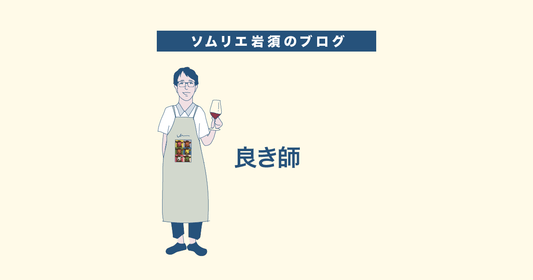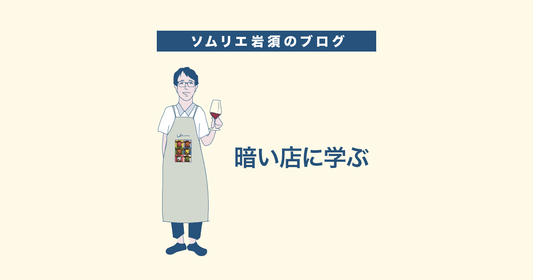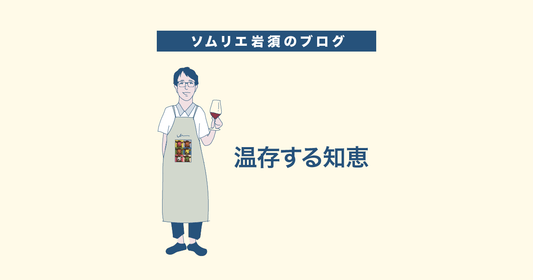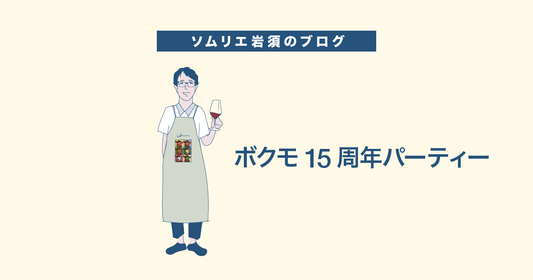
I've already written the conclusion in the title.
That's right, wine with a screw cap, not a cork stopper, is not the same as wine with a metal screw cap. However, there seems to be a misunderstanding, so today I would like to clear up that misunderstanding.
A "screw cap" is a type of wine stopper that is a metal cap that can be opened by twisting it by hand . Other types of wine stoppers include cork stoppers, synthetic cork stoppers (popular these days), resin stoppers, and glass stoppers.
It is certainly a widely known image that "cork is the orthodox stopper for wine." In fact, most high-end wines in Europe, including France, are still corked, and many wineries outside of Europe also use cork stoppers for high-class wines. The more expensive the wine, the higher the rate of cork use. That is probably not wrong.
On the other hand, many of the affordable wines sold at convenience stores and supermarkets do not use corks and often have screw caps.
However, that doesn't mean it's a mistake to assume that high quality means cork and cheap means screw.
Because...

<He usually sleeps in the wine cellar>
All of these wines are screw-capped and made in New Zealand.
Left: Bell Hill Pinot Noir 2009 (Reference price from 20,000 yen ) Middle: Felton Road Pinot Noir Block 3 2006 (Reference price from 13,000 yen ) Right: The Elder Pinot Noir 2015 (Reference price from 5,500 yen )
Screw caps do not necessarily mean cheap products.
The adoption rate of screw caps in New Zealand is outstanding among wine-producing countries, at over 99% . Most wineries in New Zealand use screw caps as a stopper for the wines they make.

<Our store mainly sells New Zealand wines, so this is how much we accumulate in two weeks.>
I think there are a number of reasons why wineries adopt screw caps, but the biggest one is probably because it's rational .
Corked wines inevitably have a risk of producing defective products. The defective products are "wine contaminated by substances in the cork." There are traces of bacteria that give off an unpleasant odor to humans, and if they are present, they are quite difficult to remove. Because of these bacteria, the wine itself can smell like a dust cloth . It's the worst. This is called "bouchonne" (French) . People say things like , "Wow, this wine was expensive, but it's so corked!"
In recent years, technology has advanced and the incidence of cork taint has been improving, but even the most high-quality wines can still have the possibility of smelling like rag juice. This is the harsh reality of the wine world. In that respect, the screw is very reasonable because it has almost no risk.
In terms of cost, screws are also rational. Cork stoppers are inevitably expensive to import. About half of the world's cork stoppers are produced in Portugal. Even such a small item is expensive to import across the ocean.
So you might think that it would be a good idea to plant and grow cork trees in New Zealand, but you can't harvest cork for 30 years after planting. The trees are then passed on to the son as a business. That's mind-boggling. People want wine corks now, not 30 years from now.
Screw caps, on the other hand, are easy to make , have well-established manufacturing and sales systems in countries around the world, and are inexpensive.
On the other hand, however, using a screw cap would mean giving up the "benefits unique to cork."
Here are some benefits of cork:
First of all, it feels luxurious . After all, corks make you feel like, "Let's drink wine!" For example, in a wine shop.
So, you've chosen your wine. How will it taste? Don't get too excited. Now, the sommelier will open the cork. He opens it. He hands you the cork. Let's smell it. Yes, the anticipation is building. Finally, the wine is poured into the glass, and here it comes!! Yummy!!!
The gradually growing anticipation will no doubt raise the excitement level when you drink it. The act of uncorking the wine is like a warm-up before you drink it.
Then there's oxygen permeability. Cork lets a tiny amount of oxygen through. This tiny amount of oxygen is necessary for wine to mature in the bottle. That's why cork is said to be essential for high-quality wine to age properly and become a mellow, indescribable "high-quality, mature wine."
However, some people say that screw caps allow a small amount of oxygen to pass through, so aging is possible. Opinions are divided on this point. After all, it takes 10 years to verify 10 years of aging. This is an area where further discussion is needed.
(Other advantages of cork include less head space and a mechanism for expelling oxygen when the bottle is sealed, but that's a bit complicated, so I won't go into it here.)
Wine makers choose the type of cork by weighing the pros and cons. At present, it seems that the trend of switching from cork to screw caps (or cork to synthetic corks) is accelerating.
So, here's the conclusion.
- Screwcaps don't mean cheap wine
- Some high-end wines use screws to maintain quality (and avoid the smell of rags).
- Whether screws are suitable for maturation is still under debate
As expected, the image that "corked wine = real wine" is not so easily changed, but what I wanted to say today is that you should not underestimate it just because it is a screwdriver.
Also, this is a very clear fact that is not open to debate, but because I open only screw-capped wines every day at the store, I have become really bad at removing corks. Sometimes when I remove a cork, my back is sweating. Please don't pay too much attention to it.





